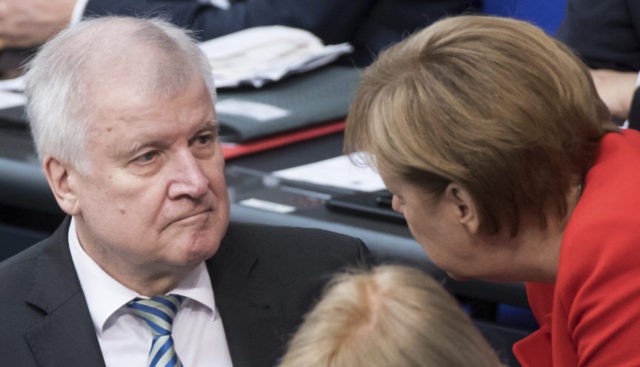VALLETTA, Malta (AP) — The Latest on the influx of migrants into Europe (all times local):
1:55 p.m.
German Chancellor Angela Merkel and Hungarian Prime Minister Viktor Orban are underlining their differences on the issue of migration, but say they are willing to keep talking.
Merkel told reporters Thursday at a joint news conference in Berlin that she wants to protect the Europe’s “humanity” when it comes to the way it treats migrants and “that is probably what separates us.”
Orban responded that Hungary’s position hasn’t changed since it closed its borders to migrants during the influx of 2015. He says his government considers the stationing of 8,000 guards along its border to be “pretty good solidarity” with Hungary’s fellow EU members.
Merkel agreed that the protection of Europe’s exterior borders is “important and justified” but says EU countries themselves need to accept some migrants, something Hungary has refused to do.
___
1:10 p.m.
Norway says the number of asylum seekers from Turkey has increased noticeably in recent weeks, and officials say it will take time to process them because Oslo needs to check other countries’ practices in similar cases.
Frode Forfang, head of Norway’s Directorate of Immigration, says many have claimed political persecution at home because of links to U.S.-based Muslim cleric Fethullah Gulen, who is blamed by Turkey for the 2016 failed coup.
The agency said that 245 Turkish nationals have sought shelter in Norway so far in 2018, including 142 arriving in June. That compares to a total of 164 Turkish nationals who sought asylum in Norway in 2017.
The agency offered no explanation for the June increase.
Forfang said Thursday that “most of them” have been granted protection in the past.
___
11:15 a.m.
German Interior Minister Horst Seehofer expects “very difficult” talks with fellow European Union countries on taking back migrants rejected by Germany.
Seehofer heads to Vienna on Thursday to meet with Austrian government officials to discuss his plan to turn back asylum-seekers who have registered in another EU country.
The plan is in line with existing EU rules, but countries on the bloc’s outer borders such as Italy have said they’re unwilling to take in all the migrants who arrive on their shores.
The issue has caused deep divisions within Europe since the mass influx of refugees in 2015, and most recently it threatened to split German Chancellor Angela Merkel’s government.
Seehofer told Parliament that “they will be very difficult talks” and “there will be no agreements in the first round.”
___
10:15 a.m.
The first group of migrants from a private rescue boat that Malta agreed to let dock only if they were divided among several countries has left for France aboard a commercial flight.
Maltese Prime Minister Joseph Muscat tweeted Thursday that an undisclosed number of migrants from among the 234 who arrived aboard the Lifeline last week had departed for France as part of what he as described an “ad hoc agreement between nine countries” on “responsibility-sharing.”
Malta and Italy had denied safe harbor to the Lifeline, which had carried out rescues in the Mediterranean off Libya, where migrant-smugglers are based. After a standoff, Malta let the boat dock but only if other countries offered to take a share of the migrants. Italy and Malta, six other EU countries and Norway agreed.

COMMENTS
Please let us know if you're having issues with commenting.